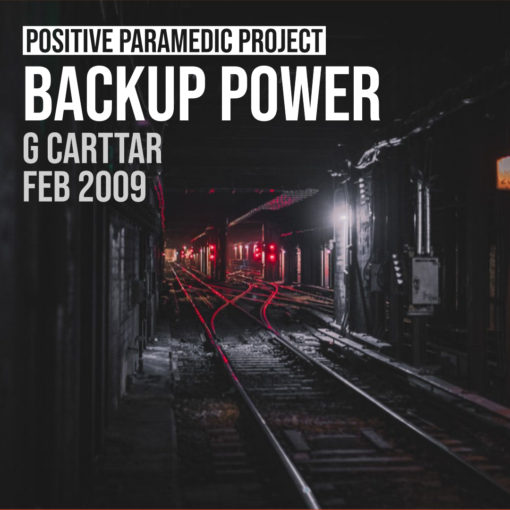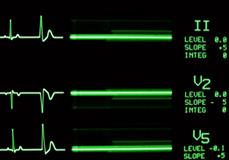Cycles by Blair Schwartz
[Jun 28 06]
I’d like to take you back to a time in your life.
In the time leading up to the day you are filled with a sense of excitement, anticipation, fear and perhaps even a little dread. Your daily activities are occasionally permeated by visions of what that day will be like.
The night before you try to get a good night’s sleep, but your mind is racing and thoughts are flitting. You awake over an hour before you set your alarm, check to see if anyone else is up and saunter to the kitchen to pass the time with cheerios and milk. After what seems like an eternity of watching the numbers on the stove’s clock turn you are joined in the kitchen. The subsequent activities are a mere blur as people scurry about making last minute changes amidst harrowed requests to “please hurry up”.Yes… I’m referring to that day we all remember so fondly, the first day of school.
This time may be more remote for some than others, but the feelings associated with it are so universal and strong that I don’t really feel the need to describe them further. As I sit now one week removed from the start of my residency these feelings are brewing again deep within me and truly the similarity between these two occurrences is uncanny.
The night before my first day I will lay out my new hospital clothing, be sure I have socks that match and fill my “schoolbag” with all of my supplies. I’ll go to bed early with good intentions and undoubtedly spend the better part of the night tossing and turning with excitement and a good healthy dose of self-doubt. I’ll awake early in the morning, completely unrefreshed after three furtive hours of sleep. This fact does not bode well for someone doing the first night shift, but I suppose it is a professional reality for the next several years. Gone is the bowl of Cheerios, replaced instead by the travel mug full of coffee and whatever leavened product is easily available in the kitchen. I’ll walk myself to the bus and arrive at the hospital, well in advance of the orientation session and choose to mill about outside rather than be the first to enter the classroom.
I’ll wait until someone breaks the ice by entering or more likely an administrator pops their head out to beckon the nervous gathering crowd inside. We’ll sign the attendance sheet and grab an envelope with our names on it, possibly even containing a “Hello my name is….” sticker!! I’ll scan the class looking for a familiar face and be sure to sit next to them and not really make an attempt to engage the new foreign faces in conversation.
Our chatter will be silenced by the entry of the attendings and chief residents. One by one they’ll go over the rules of the hospital, give introductions and as in grade school point out one of the more important facts, the location of the restrooms (though hopefully now we don’t need to ask for permission, nor go in pairs). We’ll sit eagerly awaiting the first recess break, with that fruit roll-up or prepackaged pudding now also replaced by a cup of coffee, and resume our banter.
I get a chill down my spine every time I think about this… in some ways, I really do miss grade school, with its glue sticks, coloured pencils, Velcro shoes and school nurses to take care of you… ok fine, I’ll kind of have the latter now.
Since I last contributed not too much has happened. I had some dental surgery, read books that I personally wanted to read for the first time in quite a while, did a whole bunch of shifts back on the ambulance and I attended my medical school convocation.
It would be far too easy to quickly gloss over my medical school graduation and that is something that I’d like to point out. It is disheartening, though not surprising that the rich historical nature of this ceremony has fallen to the wayside. In its current incarnation convocation ceremonies are one huge big commercialized photo opportunity. Professors get all fancy in their academic robes, the graduands don their cap, gown and hood all because these are what is needed for the picture. You know the one that will be hung on the wall or kept in grandma’s wallet to be broken out when she speaks about how proud she is of you to her friends at the hairdresser. Now I’m not naïve enough to think that this disregard for the historic or traditional nature of a ceremony is unique to the convocation process. It’s a generalized trend of our generation, perhaps most popularly known in the commercialization of Christmas. Yet there is a difference. Just about everyone knows the story of Christmas and what that holiday is supposed to represent, many just choose to ignore it and focus their celebration in other more personal manners, be it conspicuous consumption or just plain family together time.
Convocation on the other hand is one step closer to extinction in that just about nobody who partakes in it knows the historical and symbolic nature of the ceremony. If you were to ask my fellow graduates about the regalia we were wearing you’d likely get responses such as: “They’re just what we wear at graduation”, “Its pretty cool….”, “I think they look great” (I do agree with the last comment, and frankly intend to wear a full academic regalia, complete with doctoral hood and cap at least once in my medical career on rounds…. But that isn’t the point here). We have forgotten the origins of universities amidst the medieval trade guilds. We don’t recognize the convocation as the gathering of the guild of master teachers before their soon to be colleagues. We choose to throw it up in the air haphazardly, rather than take the time to realize that the biretta or square academic cap has the exact same shape as the master mason’s mortar board. Few with a Bachelor’s degree know this term alludes to the apprentice of a small land owner and equally few physicians know the term Doctor, literally means to teach.
So convocation now is about dressing funny, enduring speeches, walking across stage to get your degree and posing for countless pictures. I suppose this is the way we now choose to mark this important change in our lives, but one can’t help be just a little bit discouraged at this loss of history.
I’m going to end this piece with a story from a recent EMS shift of mine, that really reinforced in me the importance of pre-hospital care and I don’t mean clinical intervention.
I was working the day shift with a relatively new, but quite competent partner. The tones dropped for a 82 y/o F with potentially life threatening hemorrhage. I through our truck in gear and coaxed our venerable turbo diesel to give me at least one more good run. We pulled up to the building, grabbed our gear and headed into the apartment. We were greeted at the door by the clearly anxious husband of our patient who in a hurriedly, albeit jittery manner pointed us into the washroom. The floor was covered in fresh bright red blood, that per the patient was rectal in origin. In the tight confines of the bathroom my partner gloved up and set about his assessment as I took the husband aside for more information. As I held his hand, the tattoo on his forearm indicated to me that he had survived far more than 60 years of marriage. I looked him in the eye and told him that we’d take the best possible care of his wife and proceeded to gather a history to try and piece this all together. He answered politely and concisely, as if he’d done this far too many times before, though the flow of our conversation was interrupted several times by his apologies to me for being so nervous. I learned that his wife had idiopathic cirrhosis and had been in and out of hospital several times, a quick look at her medication list showed Pantoloc and Propranolol leading me to suspect she had likely bled before. I thanked him for his help and asked him to prepare everything we would need for the trip to the hospital and returned to help my partner with our patient. She was pale, anxious and her significant oedema and floridly ascitic abdomen attested to her diagnosis. My partner reported a strong bounding pulse at 120 with a pressure of 140/80…(The body’s ability for compensation truly is mind blowing) The most striking feature of the physical exam though, was her eyes. She had that look that every EMT knows all too well. The longing, but silent gaze asking “Am I going to die?”. On this my partner deferred to me. In an instant I flashed to my time on the transplant service, mentally recalled the mortality of a GI rebleed in cirrhotic patients, factored in her vital signs and knew the answer. I calmly and thoroughly explained to her what was going on and the need for her to be evaluated and treated quickly in the hospital and seeing which team was on the transport crew, reassured her that she would be in good hands. To which she replied “I already was”. I gave a quick report and they knew full well this was a patient to load and go. As they were loading her into the ambulance we again looked at her eyes. This time there was a degree of resolve/acceptance, but more important to us was the absence of anxiety. Her husband thanked us profusely and apologetically as I helped him into the front seat of the transport unit.
As prehospital providers we go on countless runs where all we seem to offer is transport, vital signs and perhaps some oxygen and we question what our role is. This symptom is commonly associated with the “I’m just an EMT syndrome”. Sure it is nice to spike a line or push lasix, but that doesn’t replace nor negate the paramount importance of pre-hospital emergency CARE. The importance of the work done by the personnel in this field cannot be understated. I don’t know if this patient survived once she was hospitalized, but I do have a sneaking suspicion that the time we took to treat her as a person went a whole lot farther to her overall well being than a bag of saline would have. People ask me why as a doctor I still feel the need to work in a limited scope first response service. The effect we can have in these situations is unparalleled anywhere else in medicine. While religion may be the opiate of the masses, most prehospital workers would take a mainline of calls like these any day of the week.
I realize that my entry today was really three smaller and seemingly disjointed pieces. Yet when you look at all three on a broader scale, it is kind of fascinating to see the trend of cycles. In spite of the stochastic nature of our universe and the freedom of human self-determination, some things just happen again and again…
I’ll check back sometime after my first day of school as a teacher.


